Balanced Diet
balanced diet by Delta publications
Key Notes :
Definition of a Balanced Diet
- A balanced diet is one that gives your body the nutrients it needs to function correctly. It means consuming the right quantities of different foods and drinks to maintain health, energy, and well-being.
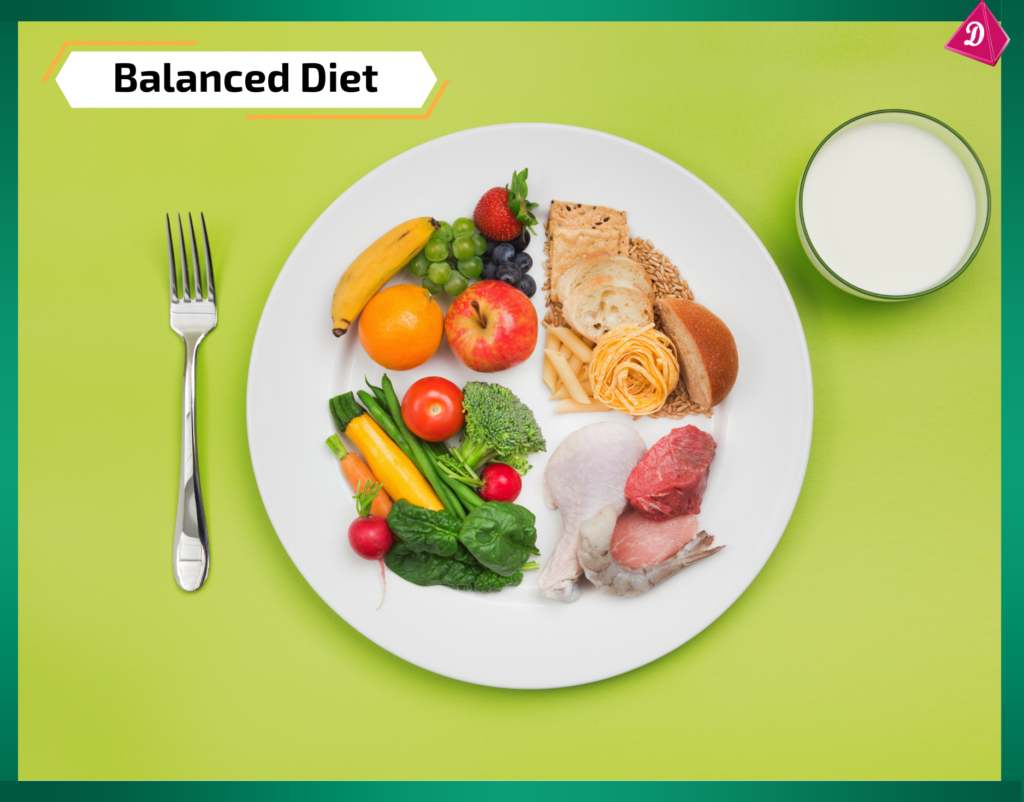
Components of a Balanced Diet :
Carbohydrates:
- Role: Main source of energy.
- Sources: Whole grains (brown rice, whole wheat bread), fruits, vegetables, legumes.
- Importance: Fuels the brain, kidneys, heart muscles, and central nervous system.
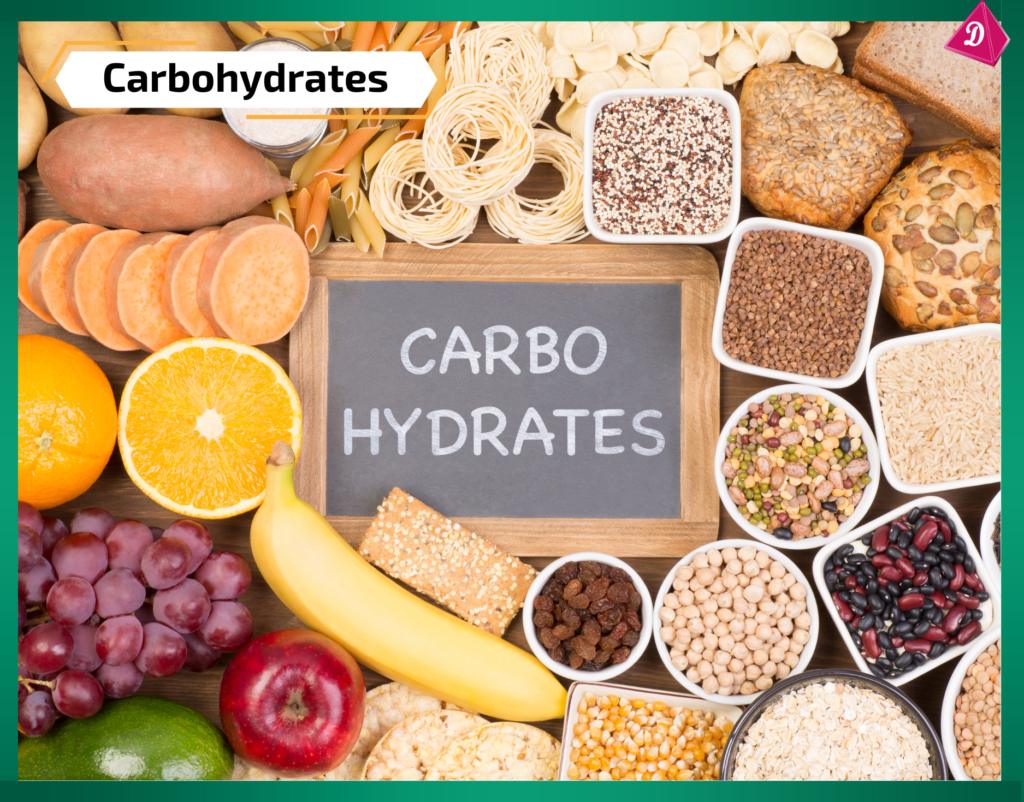
Proteins:
- Role: Essential for growth, repair, and maintenance of tissues.
- Sources: Meat, fish, poultry, eggs, dairy products, beans, nuts, seeds.
- Importance: Builds muscles and organs, supports immune function, and produces enzymes and hormones.

Fats:
- Role: Source of long-term energy, essential for absorbing vitamins.
- Sources: Oils, butter, nuts, seeds, avocados, fatty fish.
- Importance: Provides essential fatty acids, supports cell growth, protects organs, keeps the body warm.
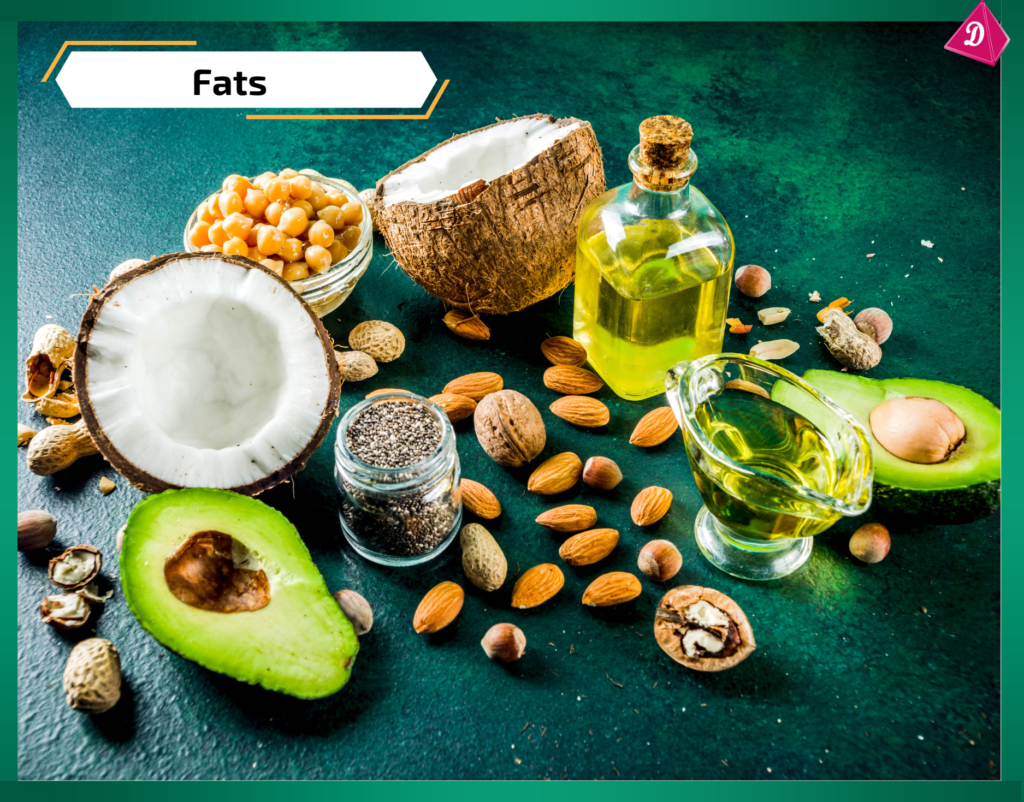
Vitamins:
Role: Regulate various bodily functions and processes.
Sources: Fruits, vegetables, dairy products, meat, fish, fortified foods.
Importance:
- Vitamin A: Vision, skin health, and immune function.
- Vitamin C: Immune support, skin health, and antioxidant function.
- Vitamin D: Bone health, calcium absorption.
- Vitamin E: Protects cells from damage.
- Vitamin K: Blood clotting, bone health.

Minerals:
Role: Support structural and regulatory functions.
Sources: Dairy products, green leafy vegetables, nuts, seeds, meat.
Importance:
- Calcium: Bone and teeth health, muscle function.
- Iron: Oxygen transport in the blood.
- Potassium: Fluid balance, nerve signals, muscle contractions.
- Magnesium: Muscle and nerve function, energy production.
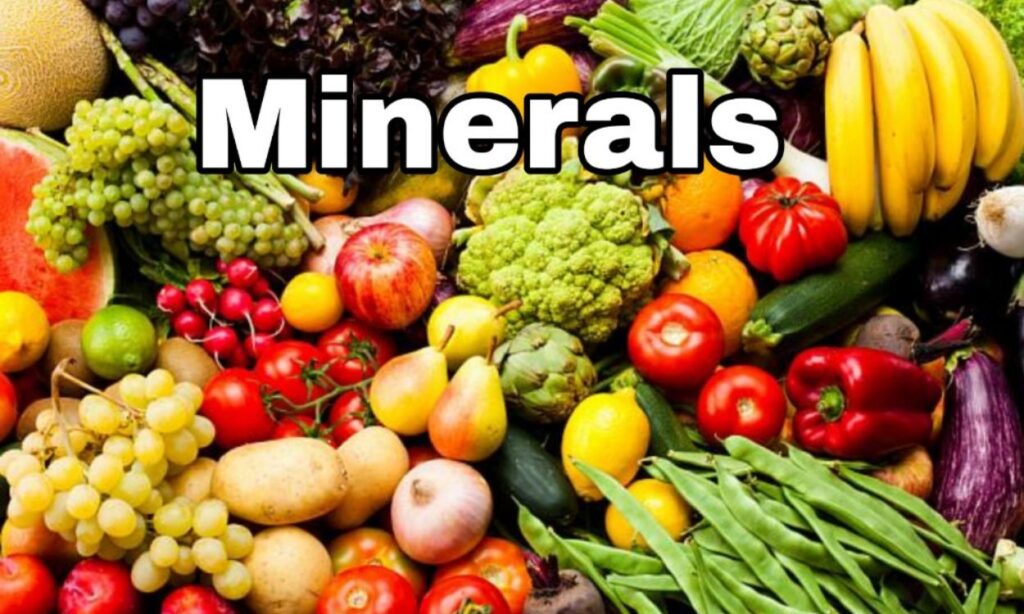
Water:
- Role: Vital for all bodily functions.
- Sources: Water, fruits, vegetables, beverages.
- Importance: Maintains hydration, aids digestion, transports nutrients, regulates body temperature, removes waste.

Fiber:
- Role: Promotes digestive health.
- Sources: Whole grains, fruits, vegetables, legumes.
- Importance: Prevents constipation, controls blood sugar levels, lowers cholesterol, supports a healthy weight.
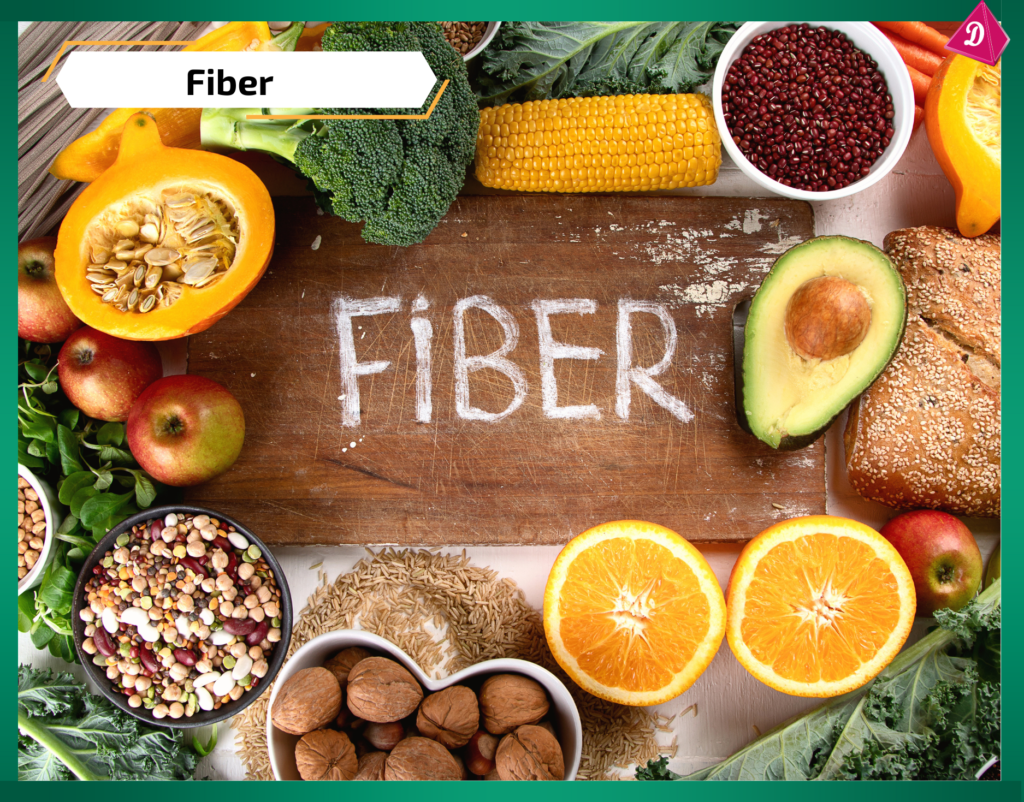
Benefits of a Balanced Diet :
- Optimal Growth and Development: Essential for children and adolescents to grow and develop properly.
- Enhanced Energy Levels: Provides sustained energy throughout the day.
- Improved Mental Health: Supports brain function, mood regulation, and cognitive health.
- Disease Prevention: Reduces the risk of chronic diseases like obesity, heart disease, diabetes, and certain cancers.
- Strong Immune System: Helps protect the body against illnesses and infections.
- Healthy Weight Management: Supports healthy weight maintenance and prevents obesity.

Importance of a Balanced Diet
- Supports growth and development, especially important for children.
- Boosts immunity and prevents diseases.
- Provides energy for physical and mental activities.
- Helps maintain a healthy weight and overall well-being.
Tips for Maintaining a Balanced Diet
- Variety: Include a wide range of foods from all food groups to ensure you get all the necessary nutrients.
- Portion Control: Eat appropriate portion sizes to avoid overeating.
- Regular Meals: Eat regular meals and healthy snacks to maintain energy levels and prevent hunger.
- Limit Processed Foods: Reduce intake of processed foods high in sugar, salt, and unhealthy fats.
- Hydration: Drink plenty of water throughout the day.
- Mindful Eating: Pay attention to what and how much you eat, and avoid distractions while eating.
Let’s practice!

